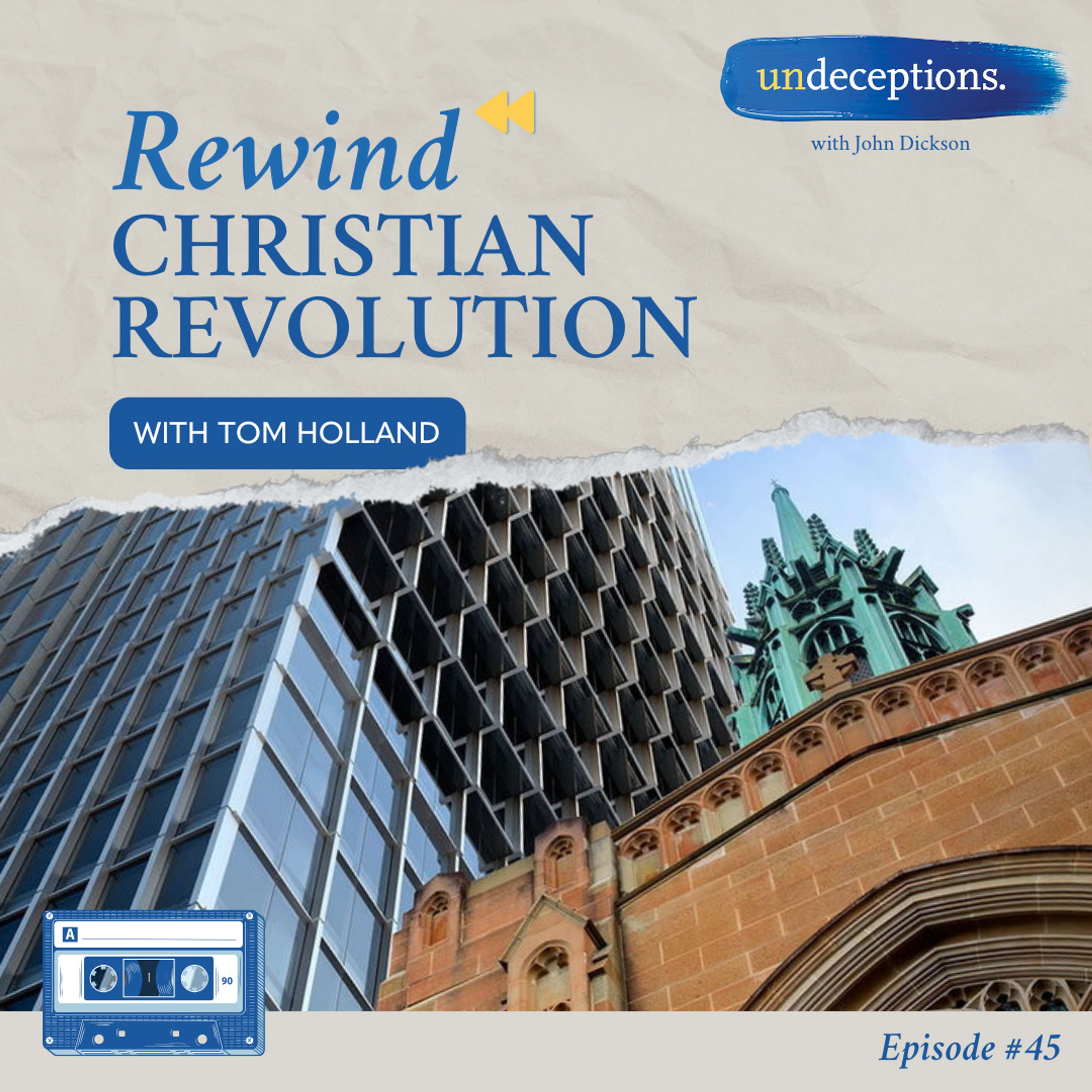
REWIND: Christian Revolution

Undeceptions with John Dickson
Deep Dive
Why does Tom Holland argue that Christianity is foundational to Western values?
Tom Holland believes Christianity shaped the values of liberal democracies, defining what is considered good for most Westerners today, even for those who are not Christians.
How did Christianity differ from other belief systems in the Roman Empire?
Christianity offered a universal appeal by making the Jewish God accessible to non-Jews, emphasizing dignity for all humans, including slaves and the poor, which was unprecedented in Roman society.
What role did the crucifixion of Jesus play in shaping Christian values?
The crucifixion symbolized the idea that the suffering and oppressed are privileged over the powerful, influencing Western moral assumptions and the belief that the first shall be last and the last shall be first.
How did Christianity influence the development of welfare systems in the Roman Empire?
Christianity introduced the idea of universal responsibility for the poor, leading to the rise of bishops who dispensed patronage, funding widows, orphans, and prisoners, effectively creating a proto-welfare state.
Why does Tom Holland consider the cross a paradoxical symbol in Christian history?
The cross, representing suffering and humility, was paradoxically adopted as a symbol of power and conquest by figures like Emperor Constantine and the Crusaders, challenging the Christian message of universalism.
How did the Holocaust influence post-war Western moral values?
The Holocaust, being the antithesis of Christian values, served as a moral lesson, reinforcing ideals like caring for the unfortunate, opposing racism, and prioritizing the weak, even in a post-Christian context.
What challenges does a post-Christian society face in maintaining Christian values?
Without a theological foundation, post-Christian societies struggle to explain why Christian values like charity and dignity for all should be upheld, as these values are inherently tied to the Christian narrative.
How does Tom Holland view the current cultural shift in the West?
Holland compares the current cultural and moral changes to the Reformation, suggesting the 1960s as a transformative period analogous to the 1520s, with the legacy of the Nazis playing a significant role in shaping modern values.
- Bill Maher's criticism of major religions
- Pamela Paul's view on the Bible's influence on violence
- Introduction to Undeceptions Rewinds
Shownotes Transcript
We interviewed Tom Holland, historian and co-host of the extraordinarily popular podcast The Rest is History, back in 2021 for episode 45, Christian Revolution.
At the time Tom wouldn’t have called himself a Christian (and we won't speak for him now), but he was adamant that not only is Christianity good, but our very sense of what good *is *comes from Christianity.
Check out our first *Undeceptions Rewind, *where we resurface some of the best bits of our older episodes that might have been mostly forgotten (but hopefully not misunderstood!)